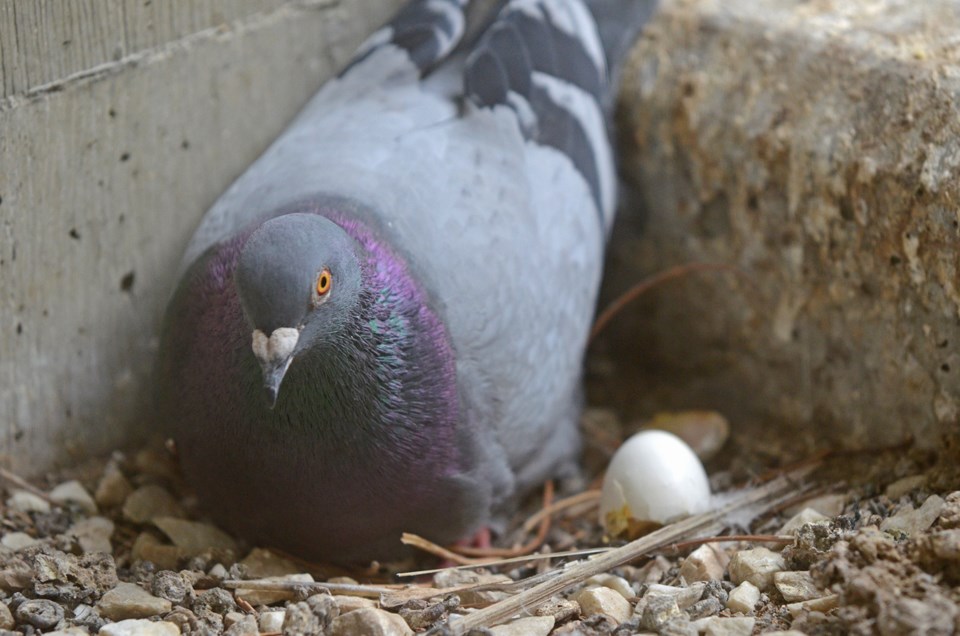TransLink and the BC SPCA are trying to reduce the pigeon population at a SkyTrain station to cut down on bird poop.
An automatic bird feeder is dispensing birth control for a pilot project to control the pigeon population at VCC-Clark SkyTrain Station.
“OvoControl is a non-toxic, effective and humane contraception used in other cities to prevent pigeon reproduction and reduce populations naturally through attrition,” said a news release. “Pigeons cause problems at several SkyTrain stations despite TransLink's best efforts to control them.”
Pigeons trigger track intrusion alarms, causing driver-less trains to brake automatically, says TransLInk.
“These hard stops can lead to customer falls and service delays.”
TransLink said it has tried several other methods:
- Installed netting at stations to stop birds from getting into empty spaces
- Set up spikes and strips to deter pigeons from roosting on flat surfaces
- Hired a falconer to patrol stations with the most pigeons as part of another pilot project
“Studies have shown a 50-90% population reduction in OvoControl managed pigeon populations,” said a news release. “Pigeons that eat the bait pellets on a regular basis will not be able to fertilize eggs.”
Dr. Sara Dubois, chief scientific officer with the BC SPCA, is quoted talking about pigeons being able to breed rapidly, but with urban lifespans that are short.
With fewer new pigeons born, the pigeon population around SkyTrain stations will reduce naturally and cause fewer operational issues, says Dubois.
“OvoControl has been approved for use by Health Canada and only has contraceptive effects in birds. Pigeons must eat their daily dose (5g/bird) for the contraceptive to work, and it is designed to be fed in a manner to maximize pigeon feeding behaviour. We are happy TransLink is ready to partner with us and research what could be a very effective and humane long-term solution.”
TransLink says that customers and the public can help by not feeding the birds.



